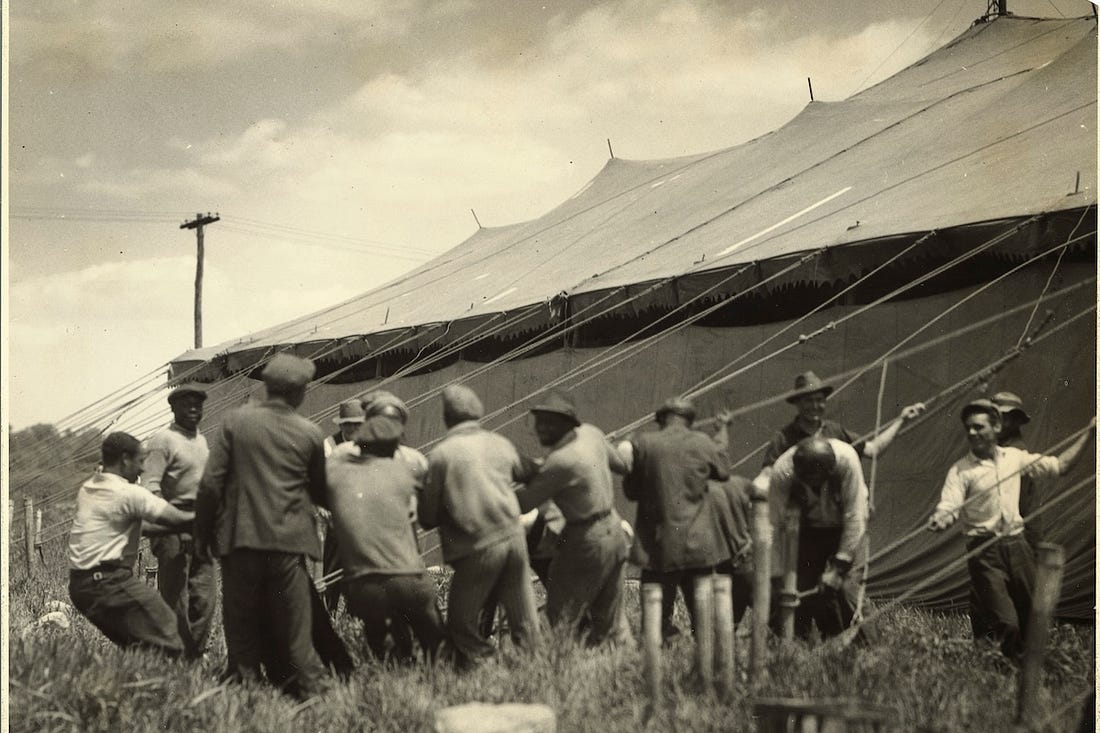|
 |
What Building A Big Tent Means In Practice
Too many Democrats use it as a cudgel or an empty slogan, but it should be more than that.
Three months ago, Hakeem Jeffries drew a template for candidate recruitment. Democratic office-seekers should fit comfortably “within the mainstream of the big tent of the Democratic Party,” he told Paul Kane, but also represent the “gorgeous mosaic of what the American people represent.”
“Our assessment has to be district by district by district in terms of who has the greatest amount of authentic appeal to the people that they hope to represent,” he added. “And then we put it in the hands of the voters.”
Jeffries was referring to House candidates, of course, but the concept is easy to generalize.
And yet, three days ago, Jeffries again declined to endorse Zorhan Mamdani, his own city’s Democratic mayoral nominee.
“We don’t really know each other well,” he said on ABC News. “Our districts don’t overlap. I have never had a substantive conversation with him. And so, that’s the next step in terms of this process, to be able to sit down, which we agreed to do, in central Brooklyn, discuss his vision for moving the city forward and addressing the issues that are important to the communities that I represent.”
Jeffries may come around. But he did not treat the Mamdani question as “in the hands of the voters.” He could not bring himself to say, “whatever our differences, I trust Mr. Mamdani more than people in Donald Trump’s pocket to protect the interests of New Yorkers.”
We’ve heard so much in the months since election day about the “big tent” or the need to “grow the tent,” that the concept has lost much of its shared meaning. What began as a shorthand for building a party with more popular appeal has become an empty cliche; an all-purpose pretext for adopting questionable ideas, tactics, and associations.
Ruben Gallego invoked the big tent to address skepticism of his fundraising partnership with the anti-democracy fanatic Marc Andreesen.
Neera Tanden took issue with my suggestion that elected Democrats who refuse to take accountability measures against Trump and his loyalists should face primary challenges. Why? Because it would supposedly “make the tent smaller rather than bigger.”
Bigger tenters will portray pandering to cryptocurrency barons as a matter tent-expanding necessity, but then hide from association with the winner of the New York Democratic mayoral primary without regard to tent size.
(For their part, some self-satisfied Mamdani supporters have swatted away olive branches from the Democrats who happily endorsed their candidate after he won. Tent-size indifference knows no faction.)
Whatever’s happening on the ground among rank-and-file voters, I would say this all suggests the elite project of “growing the tent” is going quite poorly—or, more likely, was always a smokescreen for continued factional infighting. It bears little resemblance to the ideas in this essay about how factions of the party can better coexist. If you think that’s unfortunate, follow along and we’ll reclaim the metaphor together.
THE PARTY’S INSIDE
The tent could be a house or a pasture—anything large and bounded. But let’s stick with tent. ...
Subscribe to Off Message to unlock the rest.
Become a paying subscriber of Off Message to get access to this post and other subscriber-only content.
A subscription gets you:
| Subscriber-only posts and full archive | |
| Post comments and interact with me and the community | |
| Complete, ad-free videos, and bonus videos that won’t be available anywhere else |
